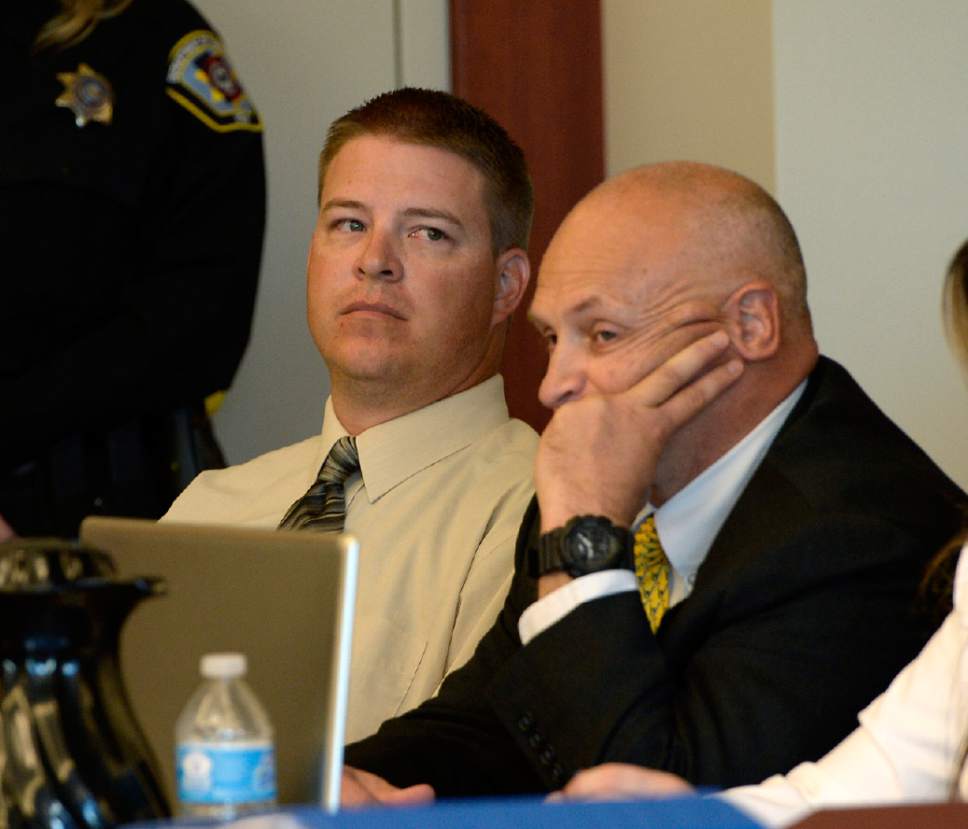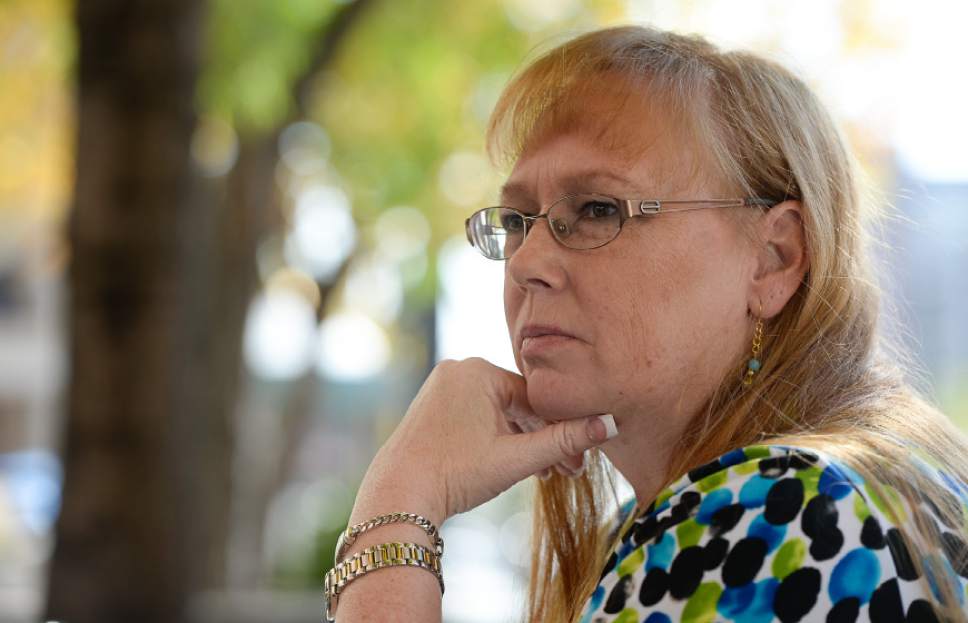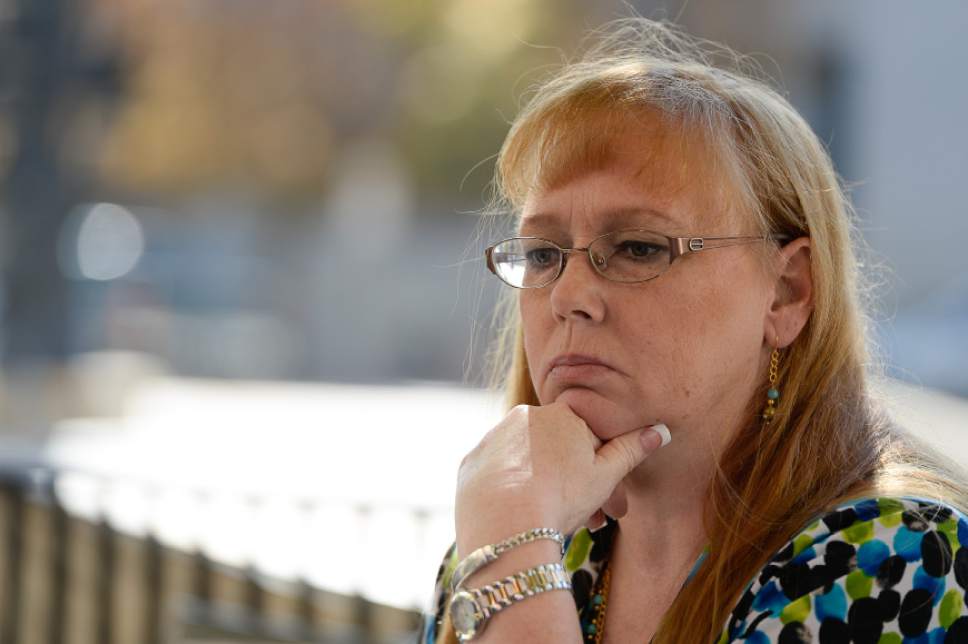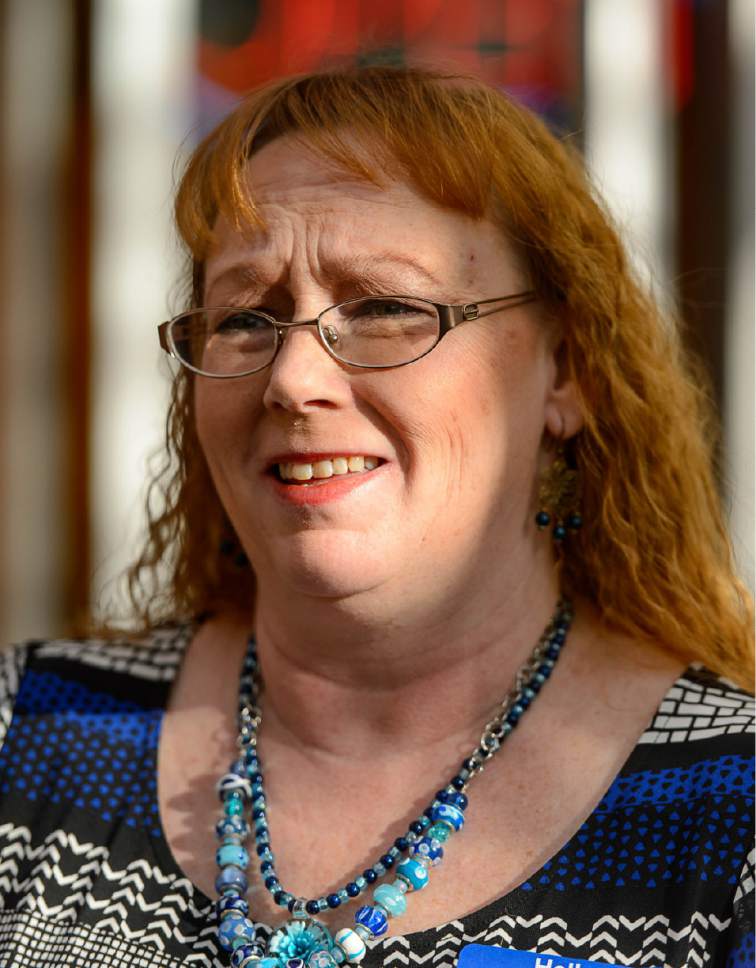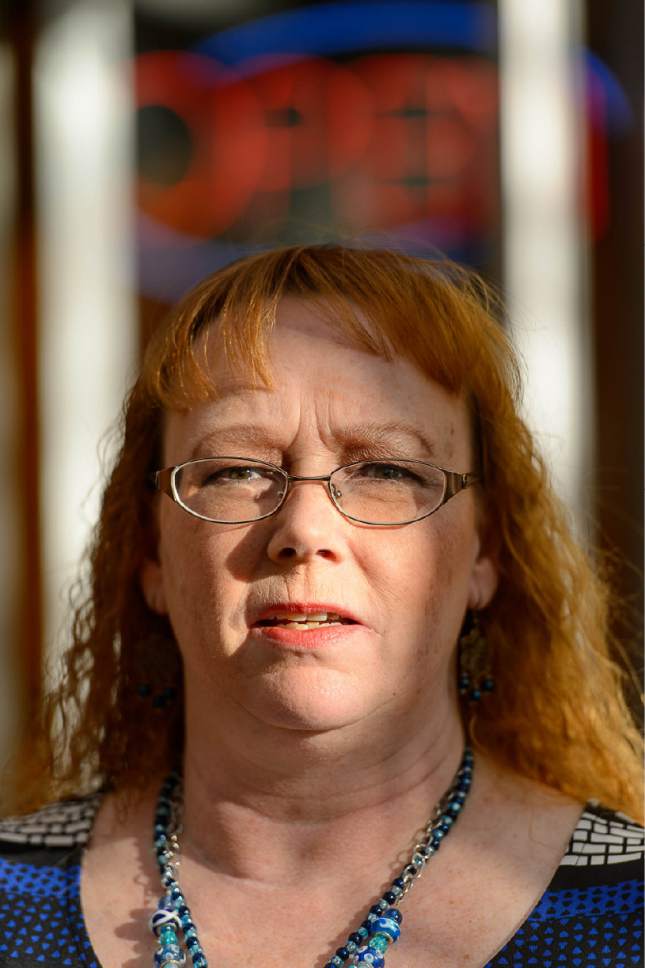This is an archived article that was published on sltrib.com in 2016, and information in the article may be outdated. It is provided only for personal research purposes and may not be reprinted.
Four years after 21-year-old Danielle Willard was killed by West Valley City police, her mother says the department responsible for the shooting deserves a second chance at the public's trust.
"The West Valley City [Police Department] of today is not the West Valley City [Police Department] of four years ago," Melissa Kennedy said. "With everything we went through with Danielle's case ... I've never been able to find peace to move on [until now]."
Moving forward does not mean Kennedy is done "getting justice" for her daughter. Rather than continue to criticize the department, however, she said it's time to look critically at legislation that shields police officers who use deadly force when they shouldn't.
On Nov. 2, 2012, two plainclothes West Valley City police officers — then-narcotics detective Shaun Cowley and his partner Kevin Salmon — approached Willard, who was sitting in her car outside an apartment complex. Cowley and Salmon said they thought they saw her buying drugs.
When Willard backed out of the parking space, Cowley said, he feared she was trying to run over him. Both officers fired their guns.
Cowley's bullet fatally struck Willard in the head, while one of Salmon's shots grazed her chin.
The shooting — deemed unjustified by the Salt Lake County District Attorney's Office — sparked an investigation into the Neighborhood Narcotics Unit, which eventually was disbanded for a time.
The probe also led to the dismissal of dozens of criminal cases and new leadership in the police force. West Valley City settled a wrongful-death lawsuit with Kennedy for $1.4 million in February 2015.
"Not one person" Kennedy considers responsible for her daughter's wrongful death — including Cowley and Salmon — is still employed at the department, she said, and she has been impressed with new Chief Lee Russo.
Hired from Covington, Ky., in August 2013, Russo has led reforms to get the department accredited by the Commission on Accreditation for Law Enforcement Agencies (CALEA). Kennedy sees the changes as a renewed commitment to be more transparent.
The West Valley City Police Department is the only Utah agency currently listed in CALEA's database, though it's still in the self-assessment phase.
Kennedy lives in Vancouver, Wash., where the Clark County Sheriff's Office has been CALEA-accredited since 1986, a distinction she credits with having a favorable impact on the community. She hopes the achievement will do the same for Utah's second-most-populous city.
"I'm very proud of what they have done," Kennedy said of the West Valley City police. "I guess for me, it helps me to understand that Danielle did not die in vain, that what came out of this is a new police department that is worthy of the public's trust." However, Ian De Oliveira, an organizer with Utah Against Police Brutality, believes police departments should constantly be open to public scrutiny, through "true community-controlled civilian police review board where there is executive power ... not just the soft community oversight." "We as a society need to develop a structure in which trust or second chances can be ideas, but ... we don't have to rely on trust [for justice to be served]," De Oliveira said. While civilian review boards exist, he said, they don't have the "concrete power" necessary to "dissuade" police officers from using deadly force or to discipline officers when they do something wrong.
In terms of transparency, the public should be placed in a position "where we don't have to beg and plead for handouts, especially as far as body cam footage goes."
Willard's shooting was "certainly a flashpoint for our department," Russo said, highlighting issues that "caused some concerns."
The chief was hired partly to establish a new vision, he said, and securing the "gold standard" of accreditation was the best way to fully review internal policies and practices. West Valley City police have been working toward accreditation for three years and hopes to complete the process in March.
Russo lauds the "great men and women" who have stayed on the force, serving the community through all the sneers and scrutiny.
Since her daughter's death, Kennedy has enrolled in criminal-justice classes through an online college. She wants to better understand "what an officer goes through" when faced with the decision to use deadly force.
Her studies have taught her to value de-escalation tactics — from the longtime advice to keep a safe distance and stay close to cover to the newer approach of opening a dialogue with words other than commands.
"Danielle will never be back. I'll never be able to hold her again or listen to her jokes or [see] her smile — she's gone," Kennedy said. "What happened to Danielle was wrong; it should have never happened.
"And I'm angry and hurt, but the changes in West Valley City should be able to have citizens look at them differently now, have a little bit more trust in them because of the accreditation that they've worked for." While De Oliveira says those de-escalation tactics are important improvements, structural changes in the law enforcement system "need to take place in order to decrease police violence," he said. In terms of "actual justice" for people who have been killed by police and their families, the system has "always fallen short.
As far as legislation goes, Russo said, it's hard to find "one single solution" for the scope and variety of issues with which various law enforcement agencies deal.
The President's Task Force on 21st-Century Policing is getting a "wonderful" conversation going on a federal level, Russo said, "but where real changes have to occur are on the local streets."
Those on all sides of these issues — civilians, police officers, lawmakers — need to drop their "immediate defenses," he said, and give one another a chance to have a "constructive dialogue."
As for his agency, he believes its best days lie ahead, and Kennedy sees signs he may be right.
Kennedy expects that when some people hear her praise the department, they will be surprised, even angry. But she views it as a different organization now, with "new people" and a "new set of rules."
Twitter: @mnoblenews


